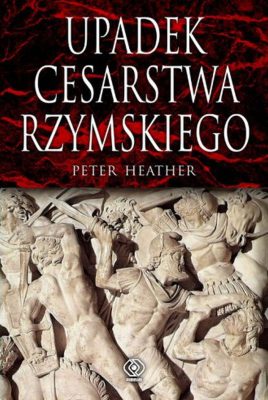A few years ago I read the work “The Fall of the Roman Empire” by Mr. Peter Heather, in which he analyzed in detail the causes and the process of the fall of the Roman state. The book by the author, who is a compatriot of the great historian Edward Gibbon (whose work on the same subject immediately draws a comparison) is a position rich in information obtained as a result of many years of archaeological work and various analyzes of ancient texts. It is written in an interesting and vivid way. The author did not spare the reader even a considerable dose of humor, which is expressed in phrases such as “Olympiodor and his parrot” or “The scourge of God has returned to his principal”.
Despite these significant advantages that can be easily seen in this work, this book unfortunately does not bring anything new, except for a minor misunderstanding, perhaps resulting from naivety in relation to the study of the fall of the Roman state. This misunderstanding, which is the weakest point of Mr. Heather’s arguments abundantly supported by various data, is the statement that the Roman state collapsed as a result of its insatiable imperial appetite. This imperial appetite of the Romans caused, according to Mr. Heather, the Roman state to make many enemies among the barbarians, and finally fell under their onslaught. This statement is a bit naive. In addition, Mr. Heather states emphatically that the Roman state could not have fallen due to internal factors and, in my opinion, attributes too much a role in the fall of Rome to external factors, i.e. the Persians and Germanic-Hungian barbarians. After all, had it not been for the demoralization of the army, the weakening of the imperial authority by the praetorians, the orientalization of customs, the growth of the bureaucracy, internal religious conflicts fueled by the fanaticism characteristic of monotheists, and the destruction of the Roman economy started with the corruption of money by the Severans and sealed by the misfortunes of the period of the so-called military anarchy, neither the Germans nor the Persians of Rome would threaten. As long as unity and civic virtue were hosted under the roof of the Roman building, it was indestructible! Many times in its history, Rome found itself in greater troubles, such as those into which it fell towards the end of its existence. He emerged victorious and strengthened. Neither Carthage nor any Hellenistic state, which were incomparably more dangerous opponents than all those who overthrew Rome, were able to threaten it. I will not mention the civil wars of the Republican period, especially its end.
Pioneer in the study of the fall of the Roman state, Mr. Edward Gibbon was right! His work is timeless analysis. Unfortunately, such analyzes are very scarce today. There is only a lot of “intellectual poplin” more or less sticking to the general guidelines of political correctness. At the end of the review of the book, it is worth adding that Mr. Heather, in my opinion, relies too much on Persian sources, which, following the Assyrian tradition, were often full of unjustified boasting, and served only propaganda purposes. It sometimes happens that the author does not confront Persian sources with Roman sources. This is the case with the reported number of Roman emperors “disabled” (captured or killed) by the Persians, which in Mr. Heather’s case is three, not one as indicated by Roman sources, which in the case of events from 260 CE are in agreement with Persian sources. In addition, Mr. Heather largely ignores the orientalization of the empire in his extensive discussion of the fall of Rome, which I consider to be a significant gap in his often interesting but incomplete exposition.

